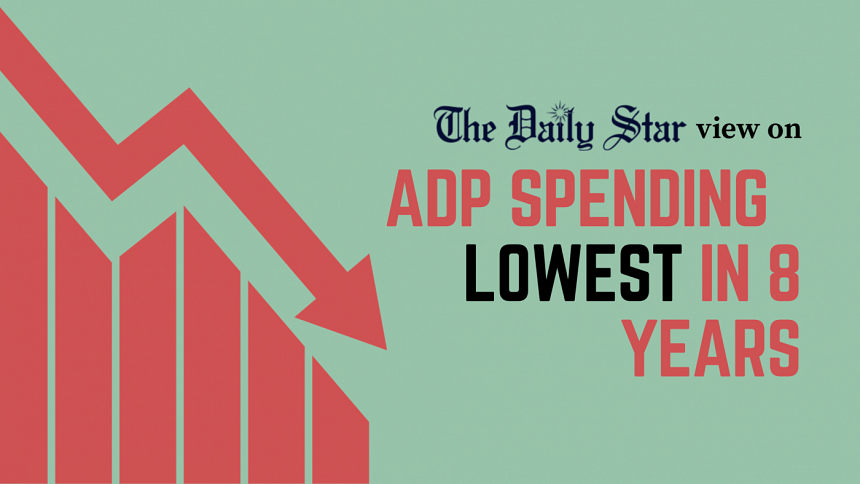Another abject failure in ADP implementation

Despite repeated promises to better utilise the allocated funds for development, this fiscal year's spending so far has been the lowest in eight years. Only 17.06 percent of the government's annual development programme (ADP) was implemented in the July-November period, as authorities managed to spend Tk 46,857 crore of the allocated funds.
While this is a new low, the trend of failing to spend allocations is nothing new. Even in the first nine months of the last fiscal year, implementation was the lowest in 10 years, and ultimately, the government could only utilise 84 percent of the ADP in the end.
According to an official of the Implementation Monitoring and Evaluation Division (IMED), this year's shortcoming was due to austerity measures and top government officials being busy with the upcoming election. This raises the question: what data and analysis are taken into account when making these allocations? The election timeline is fixed, and the economic turmoil has been ongoing for years now. So, why were authorities unable to predict an appropriate allocation amount?
Contrary to the official's statement, analysts and Planning Commission officials said even after recovering from the Covid shock in 2022, government agencies failed to regain their full capacity to efficiently execute the ADP. This points to structural, not situational, problems.
Another question pops up: if government officials ignore such a crucial responsibility and instead stay preoccupied with election activities, are they actually serving the citizens? The government has prioritised infrastructural development, which is evident when looking at the total allocation, and we have seen how implemented projects have paid dividends. So, shouldn't these officials work towards this goal?
Development expenditure continues to be the lowest in health and education sectors, although there has been no directive to restrict expenses. For instance, the Secondary and Higher Education Division was the second worst performer during this period, spending only 9.85 percent of its allocation.
For years, experts have been reiterating the importance of strengthening these sectors. We have seen how inadequate our healthcare proved during the Covid and dengue outbreaks, while our ambitious education targets, like implementing the new curriculum, will be impossible if authorities don't invest accordingly.
It is imperative that the government be prudent in calculating and utilising the allocation. This slow disbursement usually leads to reckless spending at the end of the fiscal year, which just results in utter waste. The allocated amount must bring the maximum benefits, but if the government fails to address these issues, the goals set next year will also remain unfulfilled.

 For all latest news, follow The Daily Star's Google News channel.
For all latest news, follow The Daily Star's Google News channel. 







Comments